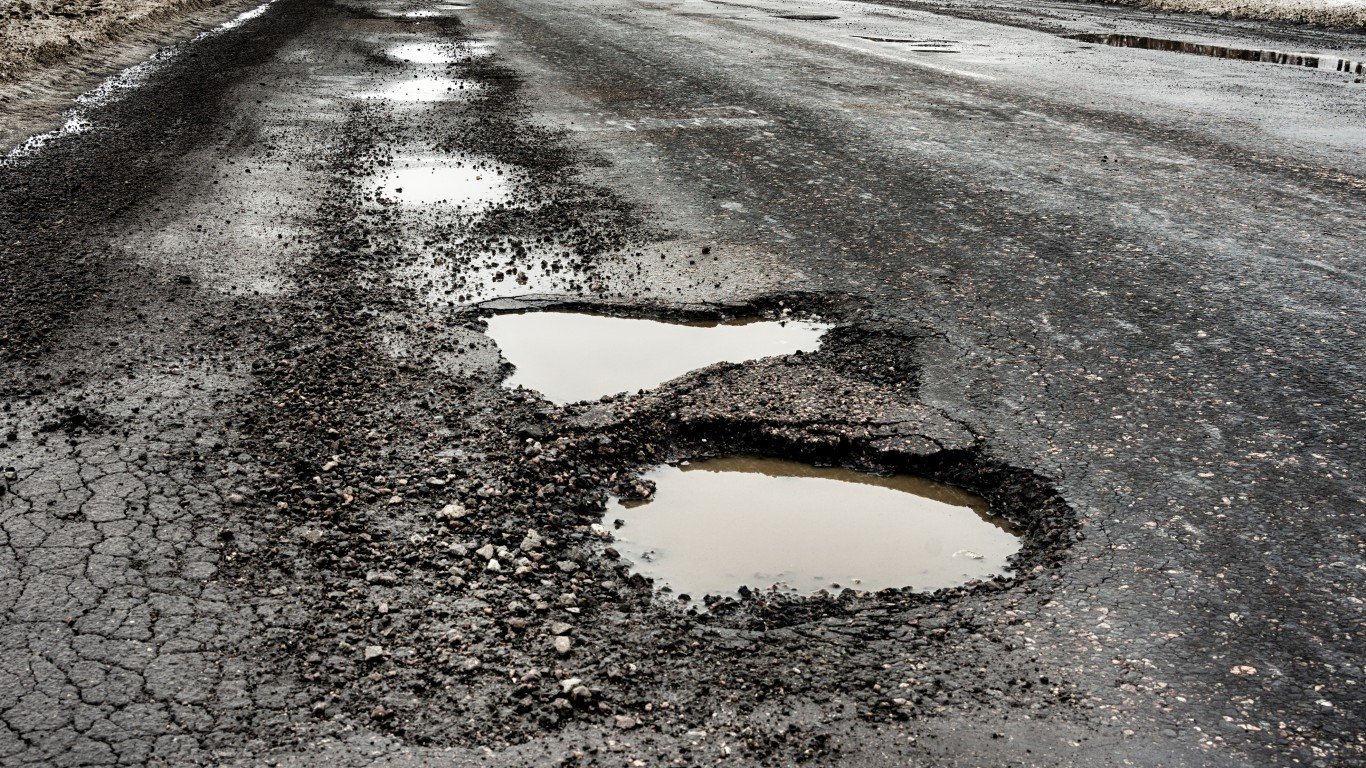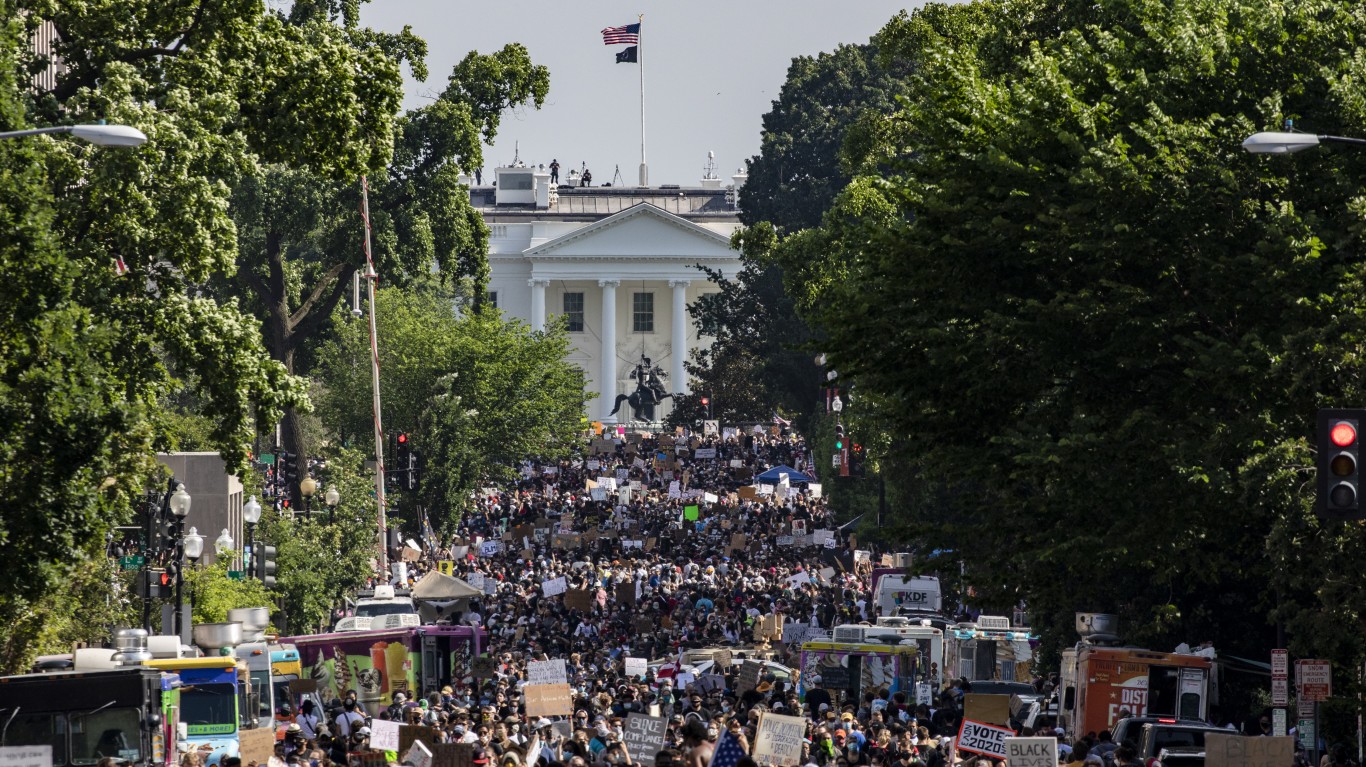
16. Unemployment
> American adults who see issue as a “very big problem”: 24% of those surveyed
> Likely Democratic voters who see issue as a “very big problem”: 23% of those surveyed (the lowest of 16 issues in survey – tied)
> Likely Republican voters who see issue as a “very big problem”: 23% of those surveyed (14th highest of 16 issues in survey)
Following a record-breaking spike during the COVID-19 pandemic, the U.S. jobless rate has stabilized near historic lows. The monthly unemployment rate has remained below 4% since January 2022. Still, the economy is a perennial issue in American politics, and 24% of voters see it as a very big problem.

15. International terrorism
> American adults who see issue as a “very big problem”: 30% of those surveyed
> Likely Democratic voters who see issue as a “very big problem”: 23% of those surveyed (the lowest of 16 issues in survey – tied)
> Likely Republican voters who see issue as a “very big problem”: 36% of those surveyed (11th highest of 16 issues in survey)
Of all the top issues for American voters, international terrorism does not rank especially high. Two decades after the attacks of Sept. 11, 2001, FBI Director Christopher Wray acknowledged that while threats from foreign terrorist groups persist, domestic terrorism presents a more immediate threat, and that the FBI had shifted resources accordingly.
Republican voters are the most likely to see international terrorism as important, as 43% of the cohort identify it as a very big problem, compared to 30% of all voters, and 36% of Democratic voters.

14. Domestic terrorism
> American adults who see issue as a “very big problem”: 34% of those surveyed (tied)
> Likely Democratic voters who see issue as a “very big problem”: 41% of those surveyed (10th highest of 16 issues in survey)
> Likely Republican voters who see issue as a “very big problem”: 25% of those surveyed (13th highest of 16 issues in survey)
The FBI defines domestic terrorism as “violent, criminal acts committed by individuals and/or groups to further ideological goals stemming from domestic influences, such as those of a political, religious, social, racial, or environmental nature.”
These incidents have become increasingly common in recent years, yet Democratic and Democratic voters are far more likely to see them as a serious threat than their Republican counterparts. A reported 41% of left-leaning voters see domestic terrorism as a very big problem, compared to 34% of all voters and 25% of Republican voters.

13. Condition of roads, bridges, and other infrastructure
> American adults who see issue as a “very big problem”: 34% of those surveyed (tied)
> Likely Democratic voters who see issue as a “very big problem”: 37% of those surveyed (13th highest of 16 issues in survey)
> Likely Republican voters who see issue as a “very big problem”: 29% of those surveyed (12th highest of 16 issues in survey)
Just over one-in-every-three American voters see the condition of roads, bridges, and other infrastructure as a very big problem – and with good reason. A 2021 report from the American Society of Civil Engineers assigned U.S. public infrastructure an average letter grade of C- based on performance in 17 major categories, including roads, drinking water, transit, dams, and bridges. According to the report, the U.S. needs to invest an additional $2.6 trillion in infrastructure over the next 10 years.
Democrats are more likely to view infrastructure as a political priority, and in November 2021, President Joe Biden signed the Infrastructure Investment and Jobs Act into law, authorizing $1.2 trillion in federal spending over a five-year period, including $550 billion in new spending to rebuild public works and transportation infrastructure.

12. Racism
> American adults who see issue as a “very big problem”: 35% of those surveyed
> Likely Democratic voters who see issue as a “very big problem”: 55% of those surveyed (6th highest of 16 issues in survey)
> Likely Republican voters who see issue as a “very big problem”: 14% of those surveyed (the lowest of 16 issues in survey – tied)
Following the May 2020 murder of George Floyd by a Minneapolis police officer, race and racism dominated the political and social discourse in the United States. Now, three years later, Americans remain divided on the issue, largely along partisan lines. Over half of all Democrats and Democratic leaning voters see racism as a very big problem, compared to 35% of all voters, and only 14% of Republicans and Republican leaning independents.





